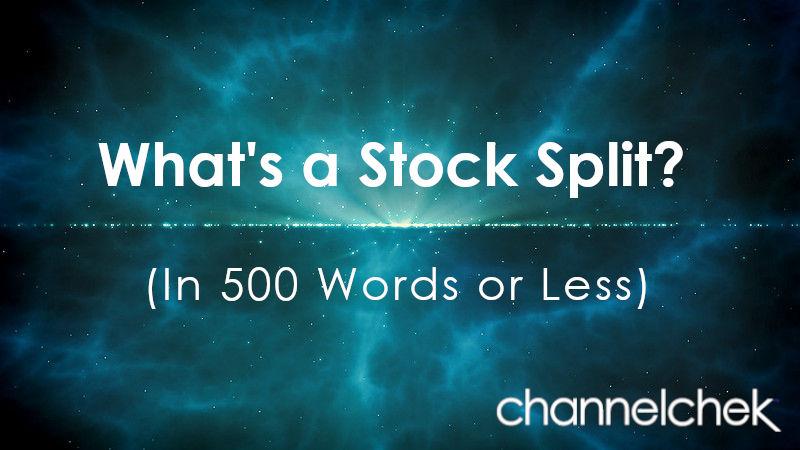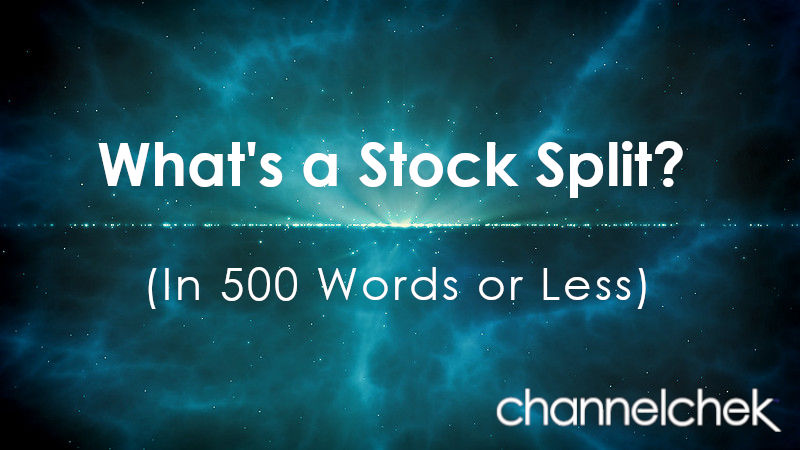Why Stocks Split and the Possible Impact to Investors
Reason for a Company to Split its Stock
When stocks split, it is most often a decision by the company to lower its trading price range to a level small enough to attract more investors and enhance the liquidity of trading in its shares.
Variations of Splits
A company’s board of directors may decide to split the stock by any ratio. For example, the most common is 2:1 (the stockholder receives two shares for each one they own), but 3:1, even 5:1 is not uncommon. In a 2:1 split there will be double the amount of shares trading, the price per share will approximate half of what it was before the split.
Impact to Market Cap
Market capitalization is calculated by multiplying the total number of shares outstanding by the price per share. For example, if XYZ Corp. has 10 million shares outstanding and the shares are trading at $20 Its market cap will be 200 million. If the company’s board of directors decides to split the stock 2:1 the number of shares outstanding would double to 20 million, while the share price would be roughly halved to $10.
Reasons for a Stock Split
The decision to go through the administrative expense is usually based on one or two of the following:
First, stocks traditionally traded in “round-lots” of 100 and multiples of 100. Companies often decide on a split when the stock price has reached a level where it is preventing those that the company would most likely want as owners from investing in round-lots.
Second, the lower priced, higher number of shares outstanding can result in greater liquidity for the stock. This is because it facilitates transactions and could narrow the spread between bid and offer.
Increased liquidity helps owners large and small find buyers when they are looking to sell, and sellers when they are looking to buy. With high liquidity, a large number of shares can be traded without much impact on price levels. While this is positive for all who transact in the shares, companies that may look to repurchase their shares also don’t have as much concern about escalating the price they’re paying. Management can also exercise their ability to sell large amounts they may have acquired as part of their compensation without causing the price to plummet.
Stock Price
While a split, in theory, should have no effect on a stock’s price, it often results in renewed investor interest, which can have a positive effect. Stock splits by large heavily traded companies are often bullish for their market capitalization numbers, and positive for investors.
When You Own Shares
When a stock you own splits, shareholders of record are credited with their additional shares. For instance, in a 2:1 stock split, if you owned 100 shares that were trading at $20 just before the split, you would then own 200 shares at about $10 each. Your broker would handle this automatically, so there is nothing you need to do.
Will a Stock Split Affect My Taxes?
No. The cost basis of each share owned after the stock split will be half of what it was before the split for tax purposes.
Are Stock Splits Good or Bad?
Stock splits are usually done when the share price has risen so high that it might reduce trading. This means investors were driving the company valuation higher. So splits often happen in healthy growing companies. Plus, a stock that has just split may see an uptick in interest as it attracts new investors at the lower price tag per share.
Suggested Reading
 What is Fed Tightening?
|
 What is the Yield Curve?
|
Stay up to date. Follow us:

|

